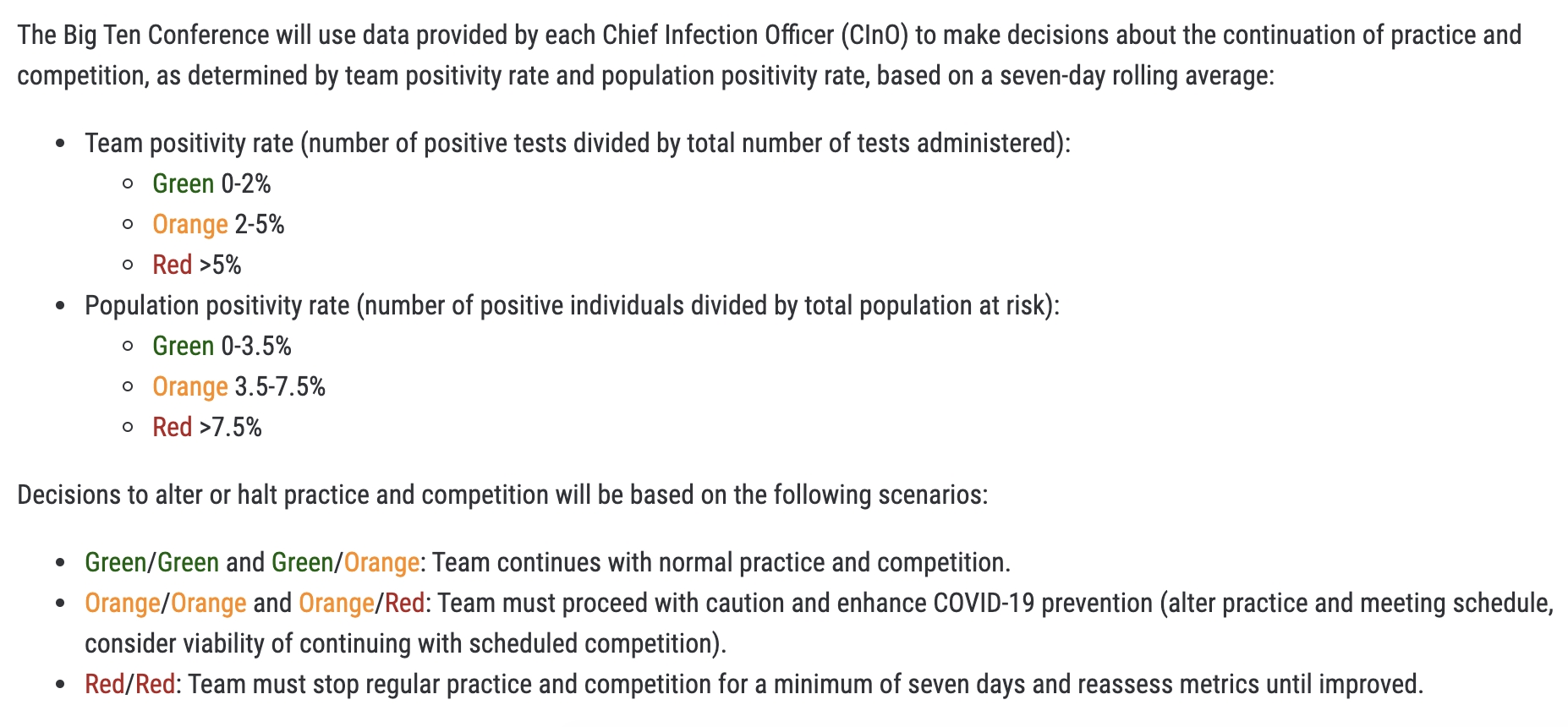
The Big Ten made waves earlier this summer when the conference announced its decision to postpone all fall sports in light of the COVID-19 pandemic. This meant that college football would not occur in the rust belt — and Maryland/New Jersey — this fall, which led to a major backlash that included everyone from coaches, to players, to families, to people in politics calling on the conference to reverse course.
For days, it seemed like the conference was on the verge of opting to play football, and on Wednesday afternoon, those rumblings became reality. The Big Ten announced that, following a vote by its Council of Presidents and Chancellors, an 8-game season will occur this fall, starting on Oct. 23-24 and culminating with a championship weekend on Dec. 19 in which each team will play the squad that sits in the same spot in the standings in the opposite division — 1 v. 1, 2 v. 2, etc.
The Big Ten Council of Presidents and Chancellors (COP/C) adopted significant medical protocols including daily antigen testing, enhanced cardiac screening and an enhanced data-driven approach when making decisions about practice/competition. The COP/C voted unanimously to resume the football season starting the weekend of October 23-24, 2020. The decision was based on information presented by the Big Ten Return to Competition Task Force, a working group that was established by the COP/C and Commissioner Kevin Warren to ensure a collaborative and transparent process.
The Big Ten will require student-athletes, coaches, trainers and other individuals that are on the field for all practices and games to undergo daily antigen testing. Test results must be completed and recorded prior to each practice or game. Student-athletes who test positive for the coronavirus through point of contact (POC) daily testing would require a polymerase chain reaction (PCR) test to confirm the result of the POC test.
As the conference explained, daily testing will begin on Sept. 30, and if a player tests positive, they will be sidelined for a minimum 21 days. The conference also announced that players who test positive will “undergo comprehensive cardiac testing to include labs and biomarkers, ECG, Echocardiogram and a Cardiac MRI,” with a cardiac registry getting set up — a major reason the conference cited to postpone the season back in August was information on a condition called myocarditis, which is an inflammation of the heart muscle.
The Big Ten additionally set up benchmarks that the programs and the universities will need to reach in order to play football safely, going on a green, yellow, red system.

While the remainder of the sports that are normally played in the fall and all winter sports are still up in the air, the conference announced that news regarding those will come soon.
